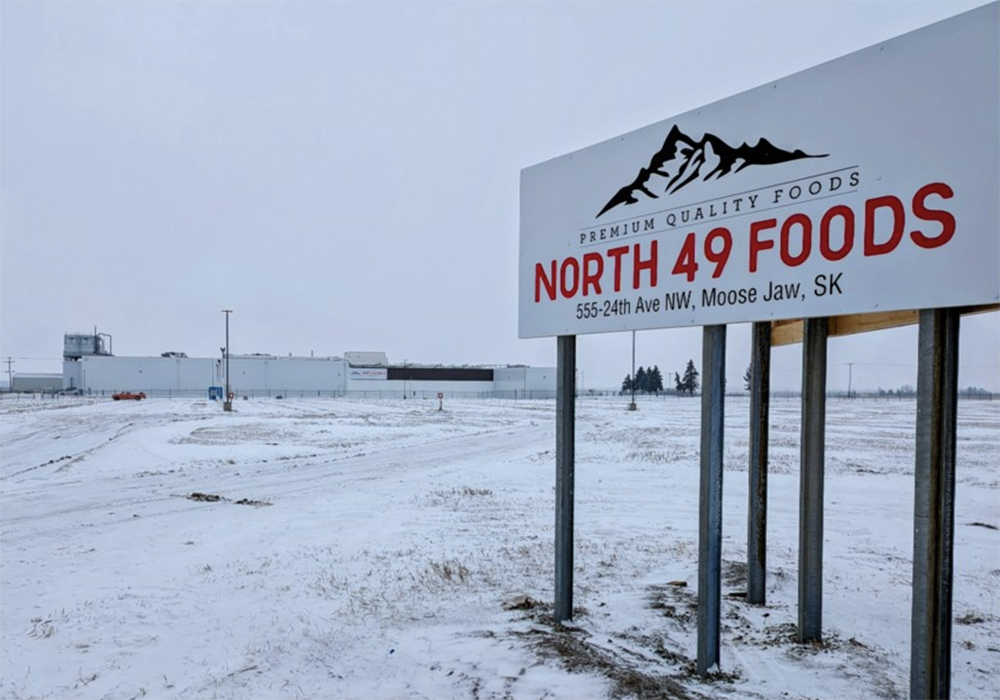There was a time not that long ago when the opening of a large hog slaughter plant in Saskatchewan would have been big news. These days, the pork production sector operates largely under the radar and the new North 49 Foods facility in Moose Jaw hasn’t received a lot of attention. (Karen Briere’s story on the new facility was in last week’s WP.)
If you turn the clock back to the 1970s or 1980s, thousands of farms across the province had hogs. When the price of grain went down, hog numbers went up. When grain was good, fewer producers raised hogs. Numbers per farm were tiny by today’s standards.
Read Also

Higher farmland taxes for investors could solve two problems
The highest education and health care land tax would be for landlords, including investment companies, with no family ties to the land.
When 600 sow farrow-to-finish operations started popping up some 25 years ago, they seemed huge compared to most family farm operations. There was a big push to grow the hog sector in the province and the economic arguments were compelling.
We had lots of inexpensive feedgrain and lots of space to ensure biosecurity. Better to send high-value meat to export than low-value grain. The economic analysis made the future look promising.
The sale and then closure of Intercontinental Packers, later known as Mitchell’s Fine Foods in Saskatoon, was a big setback. The big packing plants are in Red Deer and Brandon, meaning additional transportation costs.
Raising hogs hasn’t been an easy way to make money. Now and then there’s good profitability in market hogs, but often it has been a grind with low margins or negative margins, even for very large producers.
Despite the economic pain, hog numbers in Saskatchewan have remained relatively stable. However, a lot of barns have closed and a lot of big pork production businesses have changed hands. Family-owned hog farms are few and far between.
Saskatchewan has never become a major player in the country’s pork sector. Manitoba, Alberta, Ontario and Quebec all have much larger industries.
That’s why it was gratifying to see North 49 Foods open in the long vacant XL Foods beef plant in Moose Jaw. The facility was renovated by Donald’s Fine Foods, Donald Leung and his family. They hope to process the 200,000 cull sows from across Western Canada that are currently exported to the United States.
Rather than sending so many Saskatchewan hogs out of province, Moose Jaw will attract cull sows from neighbouring provinces. The animals can now avoid a trip over the U.S. border with a travel distance that’s often 1,500 kilometres. Improved animal welfare, better economics and greater biosecurity should be the result.
Initially, the major product from the sows will be sausage, but Donald’s Fine Foods has a strong track record in pork processing and it plans to find uses for various primal cuts.
Donald’s Fine Foods has long been running Thunder Creek Pork in Moose Jaw to process market hogs. While not at the scale of Olymel in Red Deer or Maple Leaf in Brandon, it still processes more than 300,000 hogs per year. Most people are probably unaware of its existence.
Over the course of the next year, Donald’s Fine Foods expects to have 200 new Canadians from the Philippines to staff its recently opened facility. Between the two federally inspected facilities, there will be 450 employees.
The opening of North 49 Foods isn’t in the same scale as the multi-billion-dollar additional BHP investment in the new potash mine at Jansen, Sask., but it’s still a very positive story that deserves to be celebrated.
Kevin Hursh is an agricultural journalist, consultant and farmer. He can be reached by e-mail at kevin@hursh.ca.
















